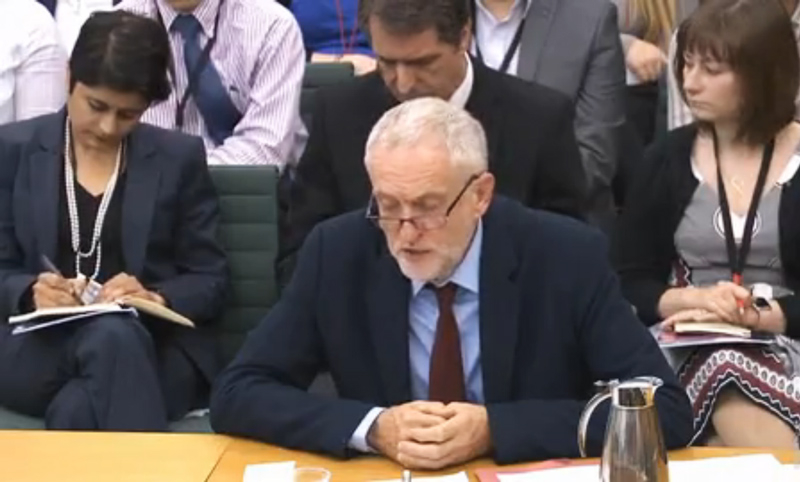by Yoni Ben Menachem
The succession battle in the Palestinian Authority has become very elemental since Mahmoud Abbas rejected the request of four Arab states – Egypt, Jordan, Saudi Arabia, and the United Arab Emirates – to mend fences with his bitter rival Muhammad Dahlan. Some of those states want to see Dahlan as the next PA chairman.The PA chairman’s two sons own an economic empire in the territories worth hundreds of millions of dollars. Abbas’ main endeavor is to find a successor who will ensure both the continued existence of his sons’ businesses and their wellbeing.
Although some in Fatah view Abbas’ rejection of the Arab request as an act of “political suicide,” Abbas does not show signs of stress. At the urging of Egypt and Jordan, which fear Hamas, he called off the elections in the territories and consented to a return to Fatah by some of Dahlan’s people. As far as Abbas is concerned, he has complied with most of Egypt and Jordan’s requests. Yet, still, he is not prepared to countenance Muhammad Dahlan.
PA Prime Minister Riyad al-Maliki claims that relations with Arab states are in perfectly good order.
This week, Ahmed Qurei (Abu Ala), a member of the PLO Executive Committee, revealed the way in which Abbas became PA chairman. It perhaps sheds light on how the next PA chairman, in the absence of elections in the territories, will be appointed.
In an interview with the Palestinian news agency, Amad, on September 10, 2016, Qurei said that he was the one who proposed Abbas as a candidate for the post and took him to Yasser Arafat, then on his deathbed at the Mukata in Ramallah the evening before he was flown to the hospital in Paris.
In the conversation Arafat did not suggest that Abbas should be his replacement; nor, however, did he express opposition to Abbas, with whom he had had sharp disagreements in the past. The conversation was friendly, and the issue of succession was not raised at all.
Qurei said that after Arafat’s death, all the members of the Fatah leadership agreed to Abbas’ appointment as successor because they trusted him.
The Abbas Family’s Businesses
The bitter succession battle within Fatah and the fact that Abbas rejected the Arab states’ request concerning Dahlan has impelled the interested parties to reveal publicly the power-wealth nexus of Abbas and his sons. Senior officials in Fatah and in Arab states sense the PA chairman’s political weakness and are now leaking information to the media about his governmental corruption.
In a report published on September 11, 2016, the Egyptian journalist Hussein Yousef of Al-Masri Al-Youm highlighted the business activity of Abbas and his two sons, Yasser and Tareq.2
Although his report gives a good deal of information on the topic, the Palestinian social networks have already been posting various materials on the Abbas family’s corruption for quite a while.3
Yousef’s report describes the family’s business empire, which is based on Abbas’ own commercial ties and his connections with states and large companies worldwide, all of which benefit his two sons’ business concerns.
Abbas’ two sons own a large business consortium called “Falcon” that has taken over the 'West Bank'’s commerce and its labor market. Abbas supports the group, and he has arranged many favorable conditions that give it advantages over other companies.
The Falcon concern has several constituent companies:
The Falcon tobacco and cigars company. The Falcon electricity and mechanical contracting company (it has branches in the 'West Bank', Jordan, and the UAE). Abbas has mustered $890,000 in assistance for it. The Falcon international media company. The Falcon general investment company, whose profits total $60 million. The Al-Mashrek insurance company, which has 11 branches in the territories with a worth estimated at $35 million. The Al-Khayar al-Awal company for projects and development, headed by Yasser Abbas.
Tareq Abbas is the Vice President of Corporate Affairs of the Arab Palestinian Investment Company (APIC). He is also Chairman of the Board of Sky Advertising, Public Relations and Event Management Company, Vice Chairman of the Arab Palestinian Shopping Centers, and President of the Palestinian Advertising Association.4
The Al-Masri Al-Youm report claims that the Abbas family has accumulated its wealth over many years and that Muhammad Rashid, who was Yasser Arafat’s economic adviser, told him that Abbas had misappropriated a sum of at least $100 million.
Yousef asserts that Tarek Abbas has smuggled antiquities from the territories abroad and has dealt in land and the selling of commercial concessions.
Dahlan, Erekat, Fayyad, Rajoub?
Dahlan alleges that Abbas is hiding away a sum of $600 million out of the $1.4 billion that then-Prime Minister Salam Fayyad transferred to him after Arafat’s death.
In an interview with the Jordanian website Amon on June 8, 2016, Dahlan said it was he who had arranged work for Abbas’ two sons with Fayyad at a monthly salary of $5,000, yet today their wealth comes to $300 million.5
These dollar figures well explain why Abbas, despite his advanced age, clings to his post and seeks a suitable successor who will safeguard his two sons’ economic empire after he retires.
The Abbas family’s corruption is the hot topic in the territories. It is clear that whoever succeeds Abbas will need to put the house in order and clean up the governmental corruption.
At first, Abbas wanted to appoint his trusted ally Saeb Erekat, secretary-general of the PLO Executive Committee, as his successor. Erekat, however, is considered a figure who is weak and lacking credibility and popularity in the territories, and who would well have served the family’s interests after Abbas’ departure as well.
Abbas’ bid to appoint Erekat encountered strong opposition by Fatah Central Committee members led by Jibril Rajoub, who sees himself as the successor, and Erekat had to declare that he was renouncing the post.
Since then the PA chairman has been seeking a different candidate to succeed him. Another aspirant is rumored to be General Majid Freij, head of the Palestinian General Intelligence, who is also considered a close associate of Abbas. So far, though, Abbas has made no move to promote him, such as appointing him as PA deputy chairman. Apparently, he fears going too far in ruffling the feathers of the Fatah leadership and the Arab states, which want to see Dahlan as the next PA chairman – something that would likely be to the Abbas sons’ detriment in the future.
Notes
1 http://www.qudsn.ps/article/89757
2 http://www.youm7.com/story/2016/9/11/أبو-مازن-رئيس-فقد-شرعيته-تجاهل-أطفال-الحجارة-وتهويد-القدس/2879689
3 See also: Jonathan Schanzer, “The Brothers Abbas,” Foreign Policy, June 5, 2012.http://foreignpolicy.com/2012/06/05/the-brothers-abbas/
4 http://www.apic.ps/page.php?id=fc9cy64668Yfc9c
6 http://www.ammonnews.net/article/234680
This article was first posted at the Jerusalem Center for Public Affairs Institute for Contemporary Affairs , founded jointly with the Wechsler Family Foundation.
Yoni Ben Menachem is a senior Middle East analyst for the Jerusalem Center and former Director General and Chief Editor of the Israel Broadcasting Authority.
Source: http://www.israelnationalnews.com/Articles/Article.aspx/19495
Follow Middle East and Terrorism on Twitter
Copyright - Original materials copyright (c) by the authors.






